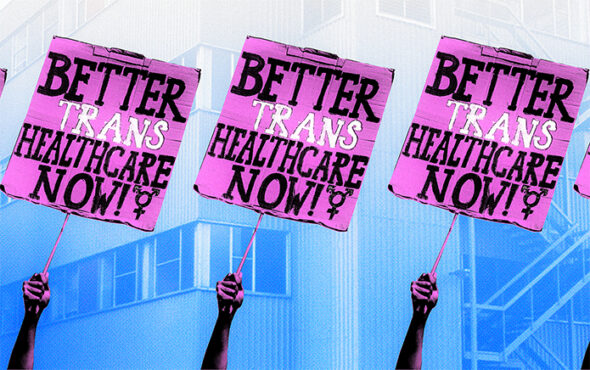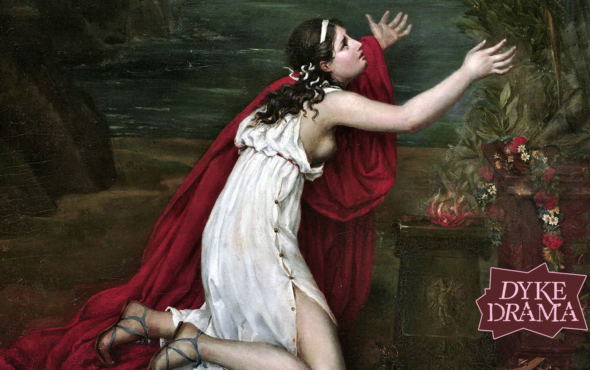What a year. 2021 continued to be challenging for many reasons, namely the ongoing COVID-19 pandemic, lockdowns, and the disproportionate effect it has had on LGBTQ+ people. We’ve witnessed a rise in anti-trans rhetoric in our mainstream media, which has undoubtedly led to a rise in anti-LGBTQ+ sentiment more broadly. We’ve all been confronted by these terrible things this year in one way or another.
But we have also seen progression in 2021. While fighting against the wrongs is necessary, we need to take time to reflect on the wins too. This year we saw LGBTQ+ people across the globe claim greater equal rights. We’ve seen LGBTQ+ people confirmed in incredibly powerful positions. We’ve seen historic firsts on the world stage in entertainment and sports. And we’ve seen the community come together in ways that embody the true spirit of Pride and the LGBTQ+ movement.
Here we’ve listed 15 of the best LGBTQ+ moments of 2021 so we can look back at some of the more positive news from the past 12 months. This is by no means definitive and there have been many more joyful moments worthy of celebration. But we want this list to give you hope as we head into 2022; as a community we can, and will continue to achieve great things.

Pose’s Mj Rodriguez becomes first trans lead ever nominated at the Emmys
Receiving a nod in the Outstanding Lead Actress in a Drama Series category for her role as Blanca Evangelista on FX’s critically-acclaimed drama, Pose, Mj Rodriguez became the first transgender performer to be nominated in one of the major acting categories at the Emmys. The prestigious television awards have historically attracted criticism for snubbing trans talent from the trailblazing series, but Mj getting the recognition she deserves for her role in the third and final season of Pose was long overdue.
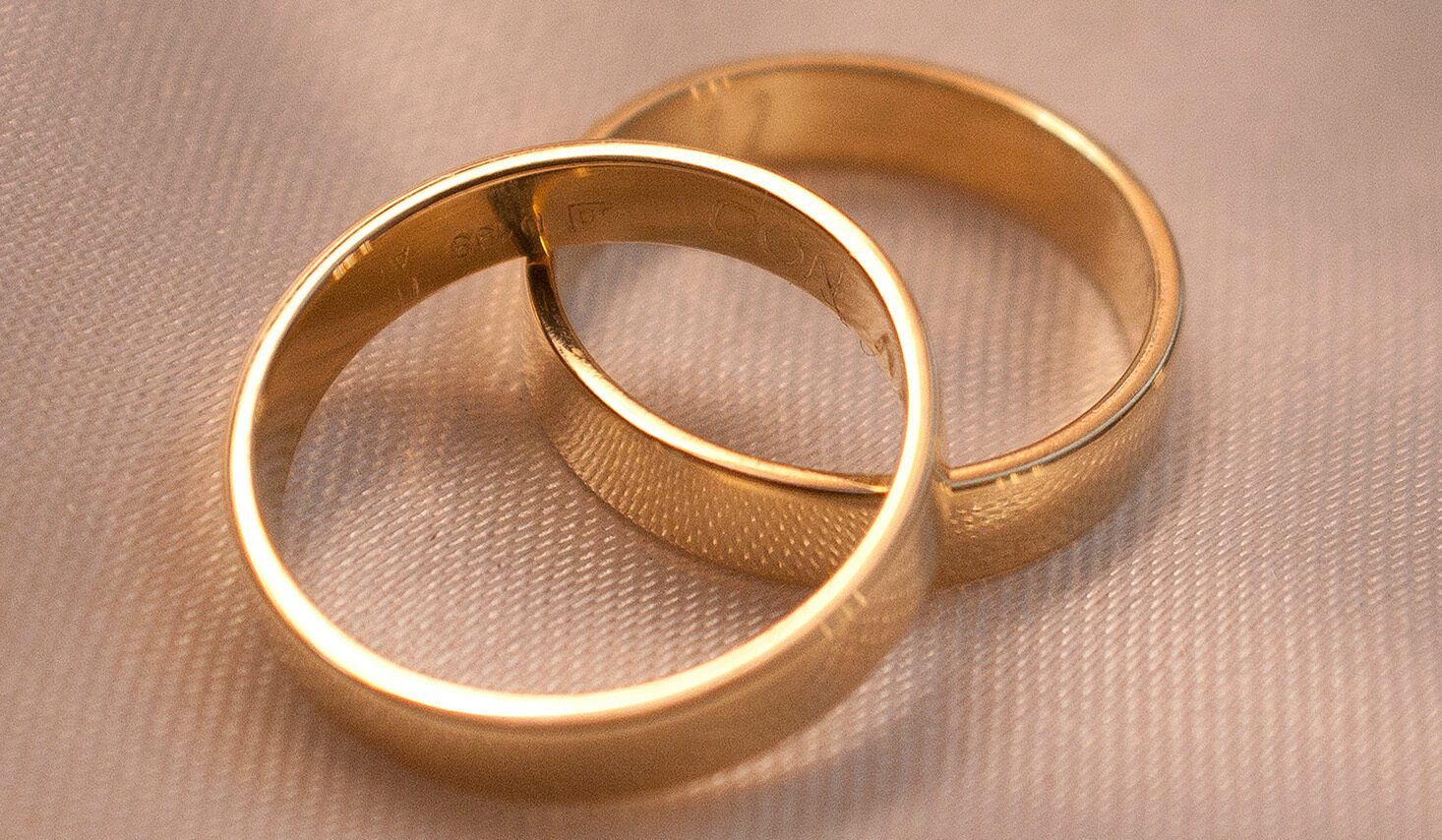
Chile, Switzerland, Tokyo legalises same-sex marriage
Same-sex marriage is by no means the pinnacle of LGBTQ+ rights, but what it does do is offer queer people greater legal protections – especially for those who want to start their own family. Chile, Switzerland, and the Japanese capital of Tokyo all legalised equal marriage in 2021, recognising LGBTQ+ people’s human right to celebrate their love and union in this ceremonial way. They join a long line of countries who have legalised same-sex marriages over the past two decades, but there are still many more nations who have yet to legalise same-sex sexual acts, let alone allow legal unions.
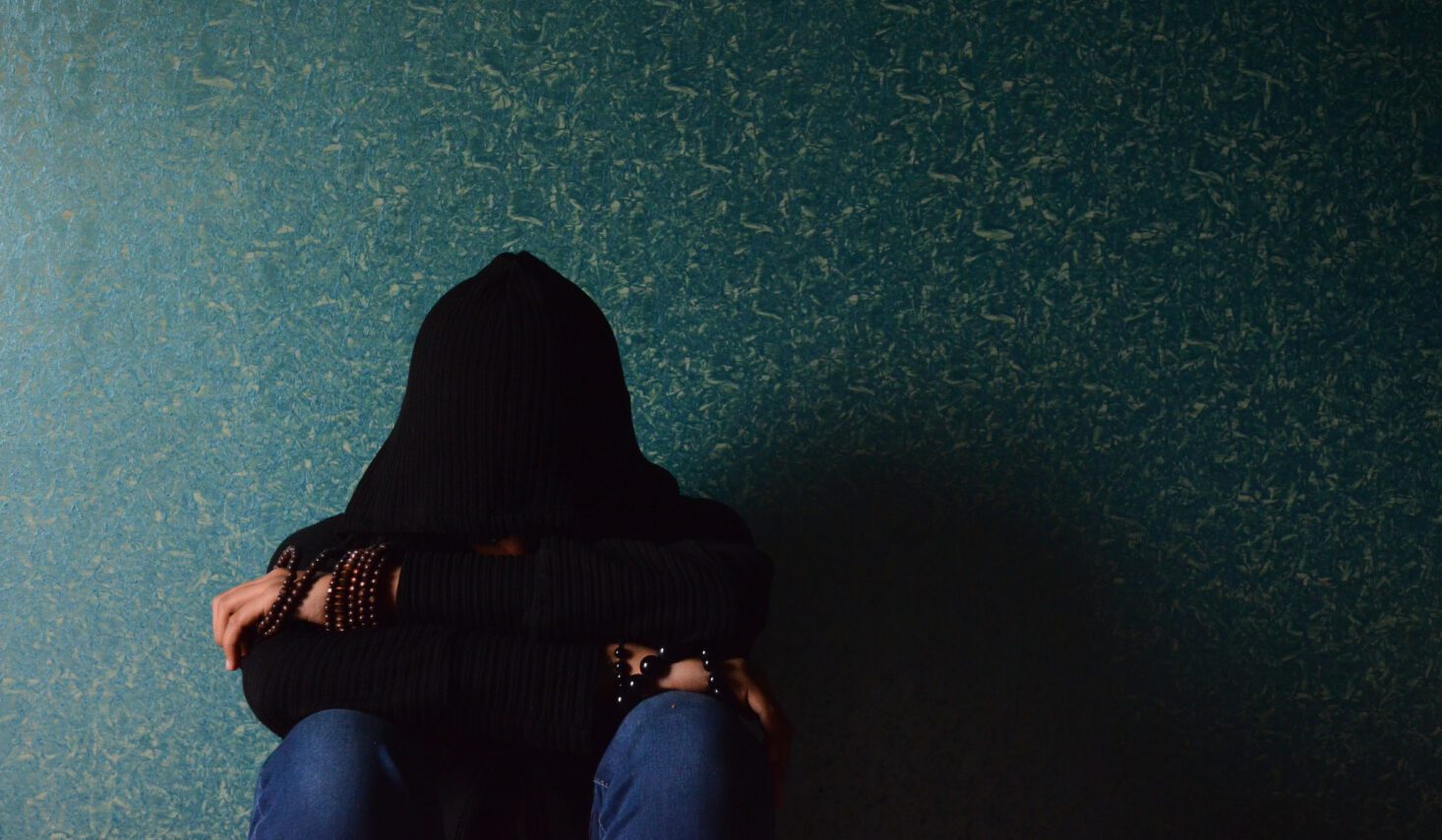
France, Germany, Canada all ban conversion therapy
The battle against conversion therapy saw some great victories in 2021, including bans in France, Germany and Canada. Conversion therapy is a practice that seeks to change someone’s sexual orientation or gender identity and can take many forms. It has been widely condemned by medical professionals who state it doesn’t work and has harmful effects on those who undergo it. However, the UK Government continued to delay the banning of conversion therapy, taking extra time to “hear all views”. There’s hopes it will be banned in the UK in the spring of 2022, but we shall see.
Tokyo 2020 Olympic and Paralympic Games sees history-making LGBTQ+ visibility
The Tokyo 2020 Olympic Games were historic before the first event even took place, namely because of it being delayed by a full year due to the ongoing COVID-19 pandemic. But it was the record number of openly LGBTQ+ athletes taking part in the sporting competition that was soon celebrated. Laurel Hubbard became the first openly trans solo athlete to compete at the Games, while Quinn became the first openly trans sportsperson to win a gold medal. Tom Daley, Lauren Rowles, and Amandine Buchard all scored golds too, with Team LGBTQ+ (a sporting category dedicated to queer Olympic and Paralympic athletes) bringing home over 50 medals in total – 25 of which have come from Paralympians. This impressive performance left Team LGBTQ+ in 15th place, ahead of Spain, Hungary and Poland.

Scotland becomes first country to require teaching of LGBTQ+ history in schools
Earlier this year, Scotland made history by becoming the first country in the world to make teaching LGBTQ+ history in schools mandatory. All school staff were given access to a toolkit of LGBTQ-inclusive teaching resources in September, as well as having to take a basic awareness e-learning course. In addition to this, there is now also an array of inclusive lesson plans and support materials made available to those working in education. The move came a year after a Stonewall study found that 60% of British people believe it’s right to teach kids about diverse families including those with same-sex parents.
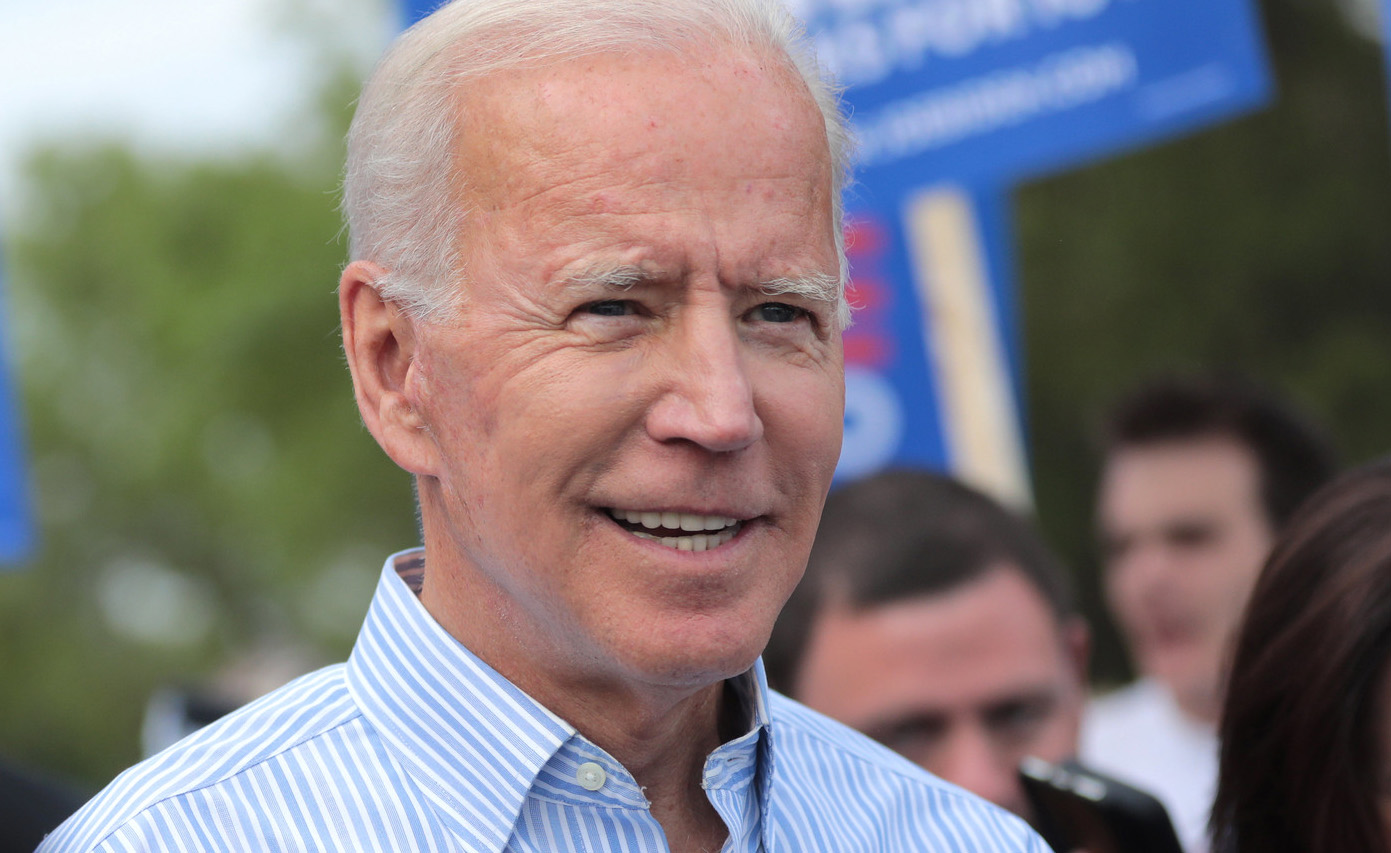
Joe Biden officially ends Donald Trump’s trans military ban
Donald Trump’s reign of terror came to an end at the start of the year, and as soon as No. 46 was sworn into office he wasted little time reversing some of the damaging anti-LGBTQ+ legislation that was brought in between 2017-2020. Joe Biden followed through on a promise to lift the trans military ban brought in by Trump, which barred transgender people from enrolling into the US military. “President Biden believes that gender identity should not be a bar to military service, and that America’s strength is found in its diversity,” a statement said when the ban was lifted.

New Zealand passes law making it easier for trans people to update birth certificates
New Zealand’s parliament unanimously passed a law that will make it easier for trans people to update the sex on their birth certificates. The country first introduced self-identification on birth certificates in 2018, though until December this was only possible if evidence of a medical procedure was provided. Jan Tinetti, internal affairs minister, said: “Today is a proud day in Aotearoa’s history. Parliament has voted in favour of inclusivity and against discrimination.”
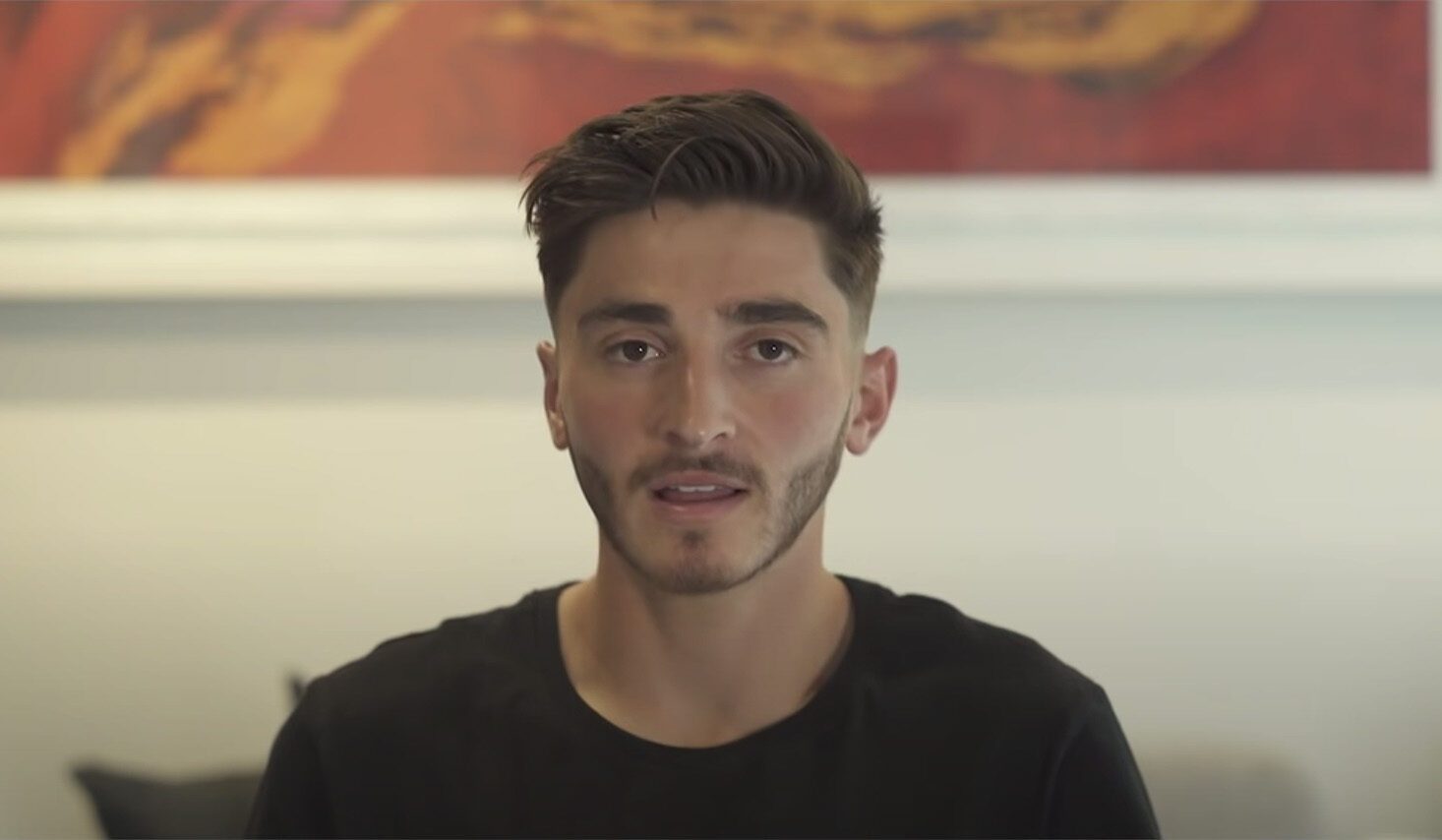
Josh Cavallo makes history as world’s only openly gay male professional footballer
On 27 October 2021, Josh Cavallo made history as the world’s only openly gay male top-flight professional footballer who is currently active after coming out. In an open letter and video posted on social media, the Adelaide United player shared that he had been “hiding who I truly am” but was “finally comfortable” to speak out about his sexuality. “There’s something personal that I need to share with everyone. I am a footballer and I am gay,” he explained. The 21-year-old added that he had been trying to live a “double life” but that enough is enough. In a letter to fans, Cavallo also shared that he “couldn’t be happier” to come out. The response since has been incredibly positive, and hopefully leads towards a more inclusive environment in top-tier football.
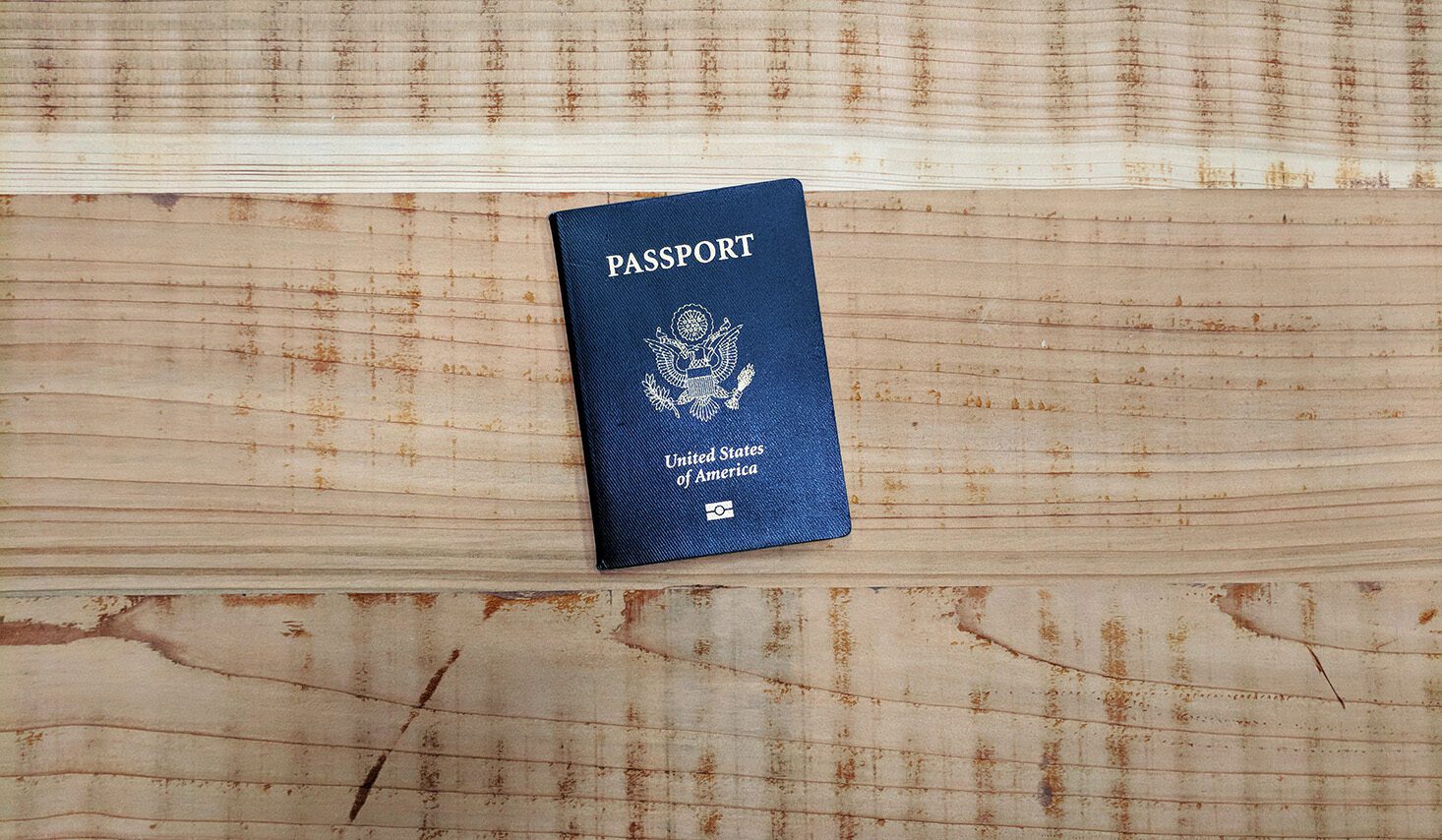
Australia, India, Iceland and the US issue first gender-neutral passports in historic move
The US joined Australia, India, and Iceland among other countries to issue their very first gender-neutral passports. The legal documents allow people to self-identify using the ‘X’ marker, rather than being forced to be identified as ‘male’ or ‘female’. There were proposals for the UK to follow suit, but disappointingly the Supreme Court rejected the efforts. The court claimed ‘X’ gender markers would undermine a legal system that is built on a clear male-female split. Campaigners called the ruling “demeaning” and “dehumanising”, noting that Britain had now parted ways with a slew of countries that recognise gender-neutral documents.
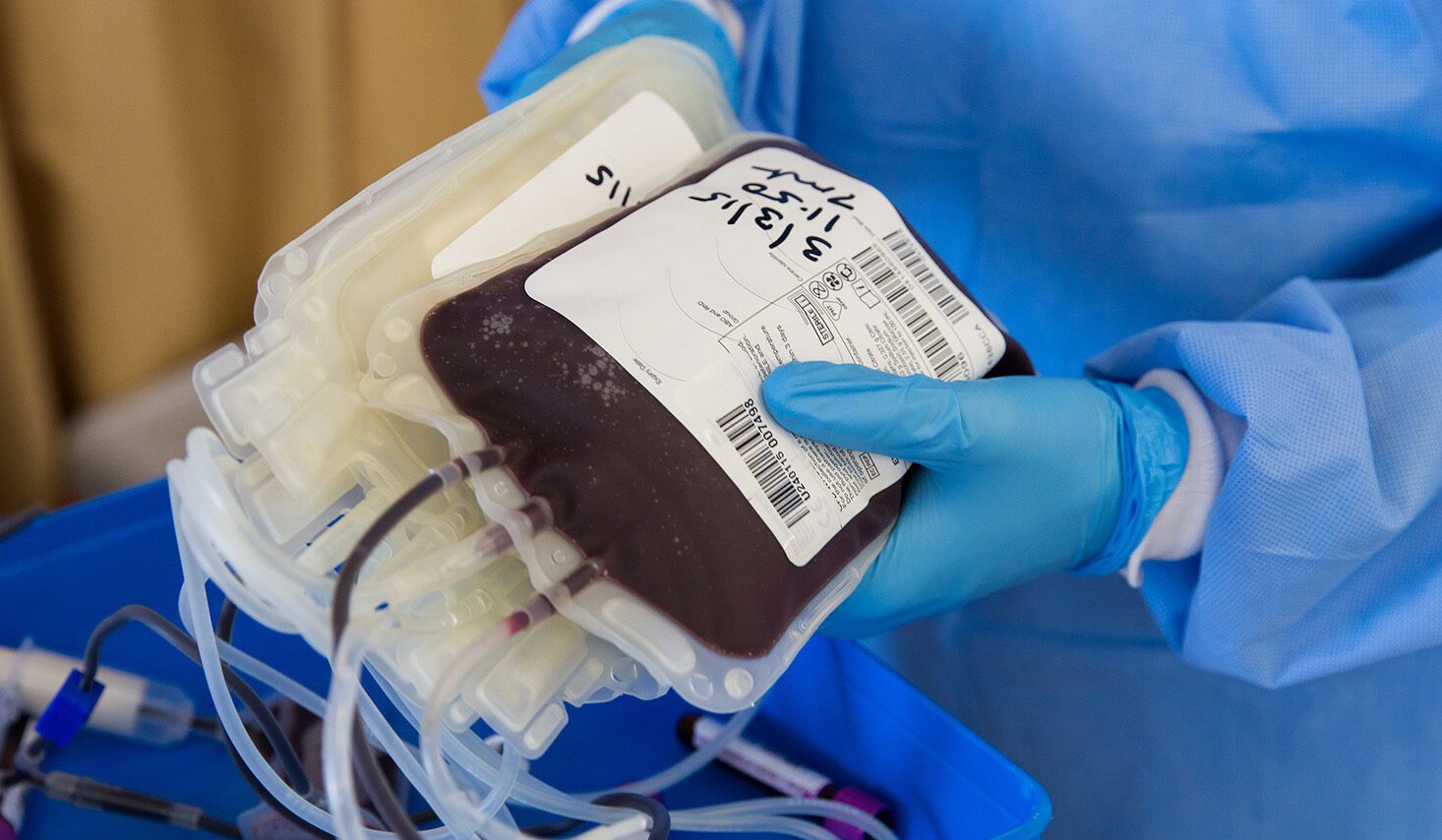
Blood donation ban for gay and bisexual men officially lifted in England, Scotland and Wales
In June 2021, more gay and bisexual men became eligible to donate blood than ever before thanks to a historic new rule change in England, Scotland and Wales. All donors are now asked the same questions about their sexual behaviours in a gender-neutral manner. The new rules means people can donate if they have had the same sexual partner for the last three months, meaning gay and bisexual men in sexually active and monogamous relationships can donate for the first time. For decades, gay and bi men were banned from donating blood. The policy was first changed in 2011 to allow gay and bi men who have not had sex in the past 12 months to donate. Then in 2017, it was revised again to permit donations by men who have not had sex in the past three months, which excluded sexually active men who were in monogamous relationships. This historic change in 2021 came after years of pressure from LGBTQ+ campaigners, who long argued that the policy did not reflect current risk levels.
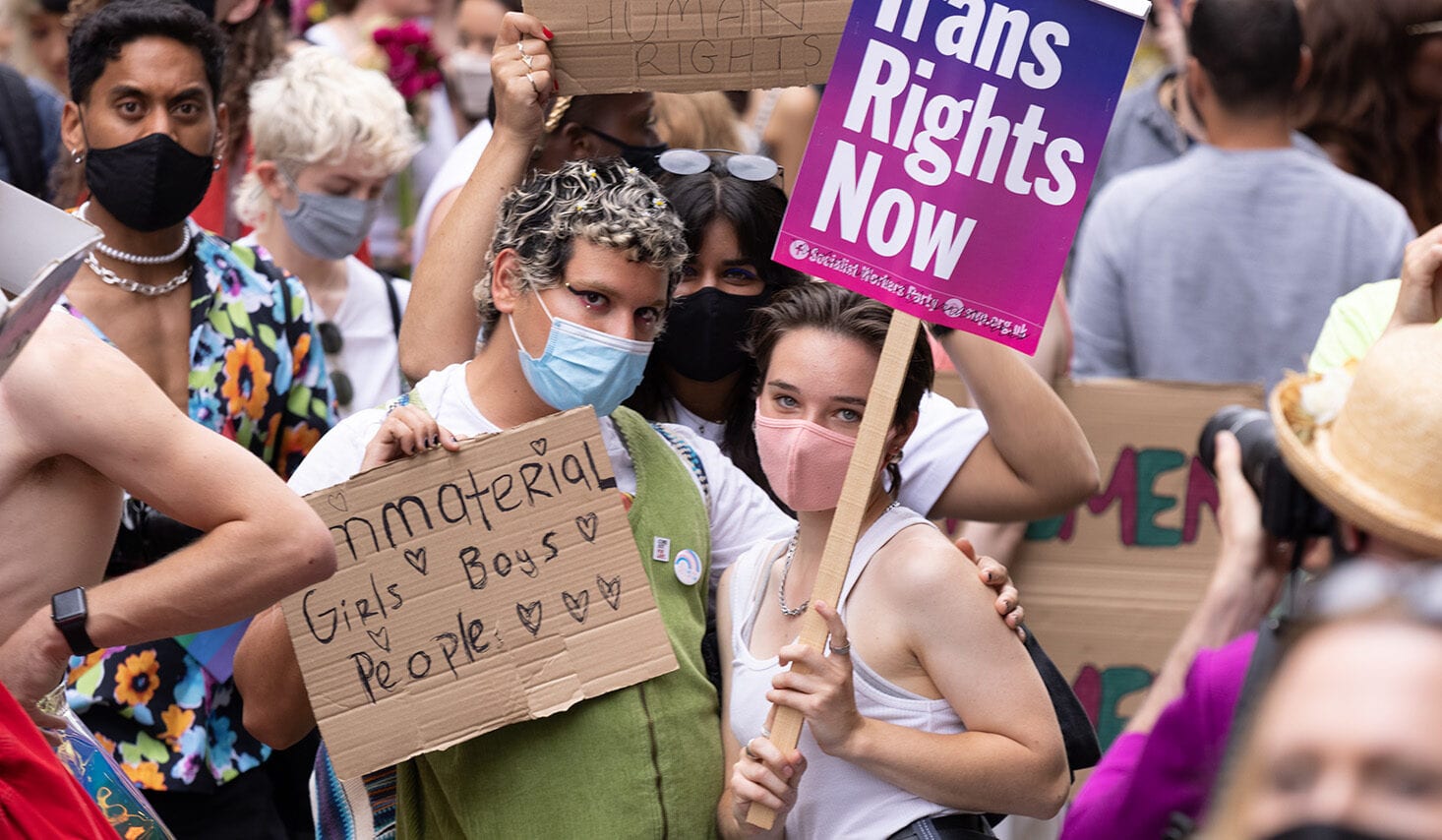
Trans+ Pride marches through the streets of London
On the last weekend of June, thousands of people from across the UK lined the streets of London to take part in Trans+ Pride. The march – which went from Wellington Arch at Hyde Park Corner through to Soho Square in central London – saw people don trans flags, placards and flowers in a monumental display of solidarity with trans, non-binary and gender nonconforming people. Munroe Bergdorf, Bimini Bon-Boulash, Kai-Isaiah Jamal, Ki Griffin and Abigail Thorn were among the speakers on the day, as activists, friends, families and community members all cheered on the pro-trans messaging. It was a much-needed rallying cry to band together with our trans siblings to listen to what they had to say, show our support as a community, and reassure trans people everywhere that we will continue to fight for their rights.
Our executive director, @MsLadyPhyll, is now addressing attendees:
“We’ve been able to do this work for a decade because so many people show up – in big, small, important ways – for the global LGBT+ community.” #KT10 #FreeSafeEqual pic.twitter.com/m9MBmDvoRP
— Kaleidoscope Trust (@Kaleidoscope_T) December 6, 2021
Kaleidoscope Trust marks a decade of making change
This year, UK-based charity Kaleidoscope Trust marked its 10th year of making change for the lives of LGBTQ+ people across the Commonwealth. Over the past decade they have influenced inclusive legislative changes, advocated for LGBTQ+ people and their rights globally, and secured and distributed more than £1 million for organisations who need the funding to positively impact the lives of queer people. “None of our achievements, at home or abroad, can be taken for granted,” said Kaleidoscope Trust’s executive director, Phyll Opoku-Gyimah. “The work, the passion, the fight must continue and we each have a role to play in ensuring no LGBT+ person is left behind.” To mark the anniversary, GAY TIMES hosted a couple of Instagram Lives in collabroation with Kaleidoscope Trust, spotlighting activists doing incredible work. You can watch our conversation with Nkwain Hamlet here, who campaigns for greater LGBTQ+ protections in Cameroon. Our conversation with Kenita Placide about the work they’re doing in St Lucia as Co-Executive Director of United and Strong Organisation can be viewed here. And our conversation with Kaleidoscope Trust’s executive director, Phyll Opoku-Gyimah, about the organisation’s important work can be seen here.
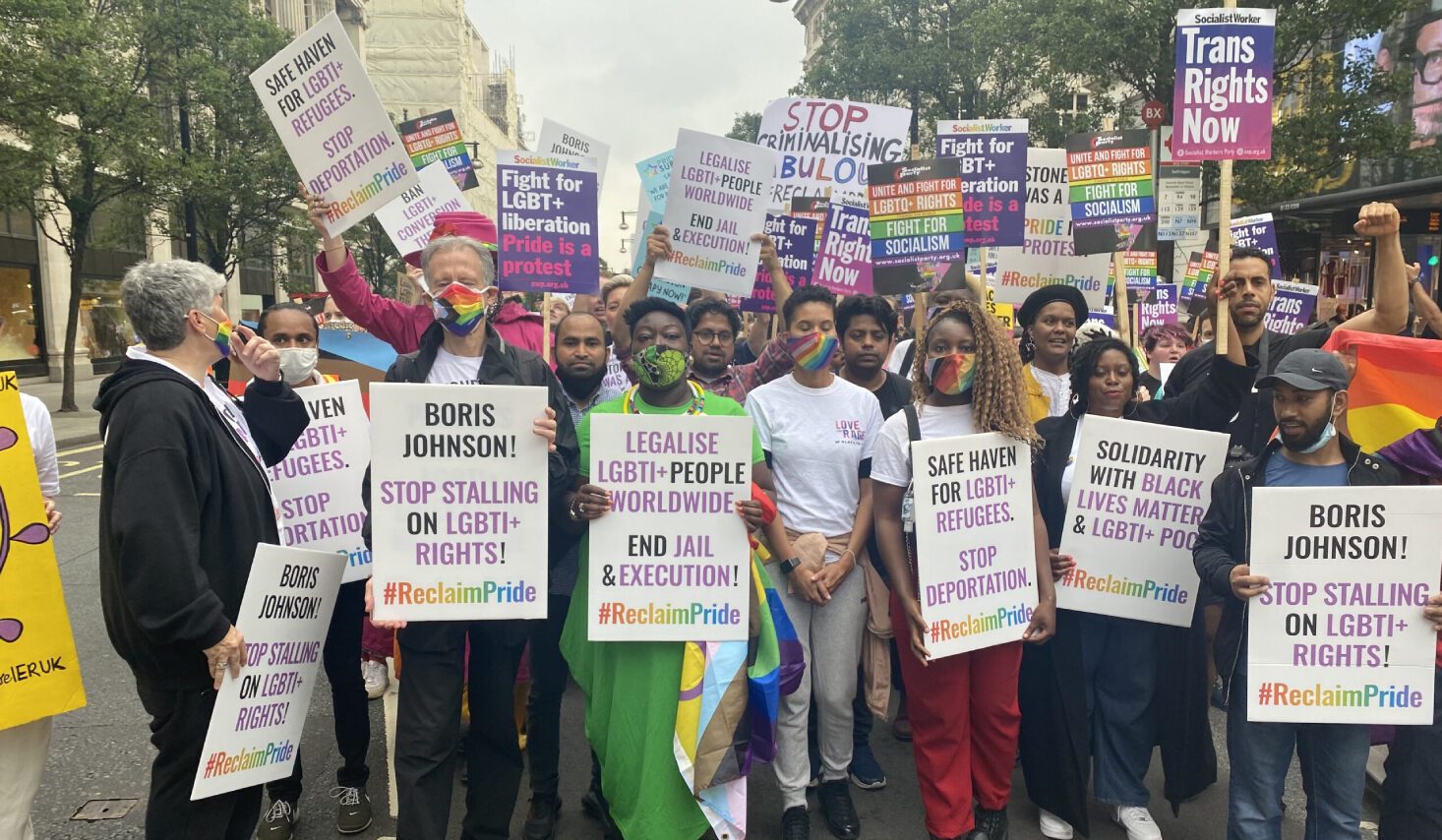
The first ever Reclaim Pride march took place in London
In July 2021, human rights and LGBTQ+ activist Peter Tatchell led the first ever Reclaim Pride march, which saw thousands of LGBTQ+ activists and allies attend with banners and flags to advocate for less commercialised Pride events in the UK. The march – which went through landmark areas in central London such as Parliament Square and 10 Downing Street – also protested the lack of rights and protections for the trans community in the country, as well as racial diversity at annual Pride events. Activists also used the march to call on the government to reform the outdated Gender Recognition Act (GRA). “London’s #ReclaimPride today showed that #Pride doesn’t have to be corporate and commercial,” Peter tweeted after the event. “It was a celebration AND protest.” Peter also called on Boris Johnson to “stop stalling” on LGBTQ+ rights, to ban conversion therapy and reform the Gender Recognition Act, as well as provide a “safe haven” for LGBTQ+ refugees.
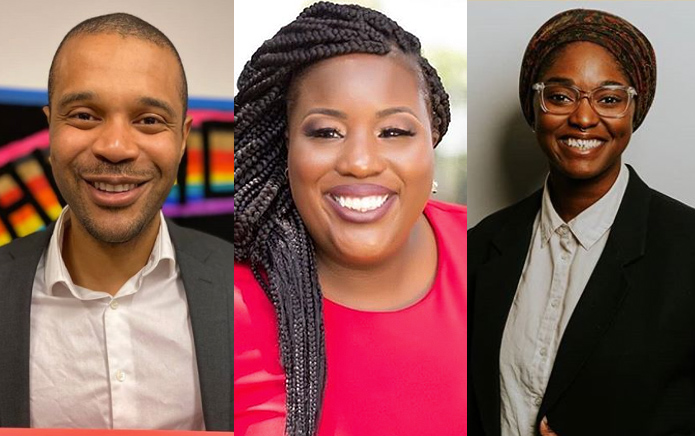
A history-making amount of LGBTQ+ senators and legislators take office following the 2020 US election
After winning the votes of the US public in November 2020, a record number of openly LGBTQ+ senators and legislators began work in their new roles at the start of 2021. Sarah McBride made history for the Democrats in Joe Biden’s home state of Delaware by being elected into the US state senate just 30 years old, making her highest ranking transgender public official in the United States. Ritchie Torres and Mondaire Jones each became the first openly gay and Afro-Latinx members of congress, while Mauree Turner became the first non-binary Muslim Oklahoma state lawmaker. Jabari Brisport became the first openly LGBTQ+ person of colour to be elected to the New York State Senate, Shevrin Jones made history as the first openly LGBTQ+ state senator in Florida, and Michele Rayner-Goolsby became the first queer state legislator elected to Florida’s House of Representatives.
Thank you @VP for officially swearing me in this morning. I’m humbled to join an administration full of remarkable leaders who have broken barriers on the road to public service. https://t.co/ST4KpGkXm9
— Secretary Pete Buttigieg (@SecretaryPete) February 3, 2021
Pete Buttigieg makes history as the first openly gay Cabinet member in the United States
On January 27, Pete Buttigieg became the first gay candidate to pass a committee nomination and confirmed as a Cabinet member for the Biden Administration. Buttigieg was confirmed as President Biden’s Secretary of Transportation in a bipartisan vote of 86 to 13. The former mayor of South Bend, Indiana, was Biden’s rival for the Democratic presidential nomination in 2020. In a statement, the US President hailed Buttigieg as a “patriot and a problem-solver who speaks to the best of who we are as a nation”. On his confirmation, Buttigieg said: “I’m honoured and humbled by today’s vote in the Senate—and ready to get to work.”
